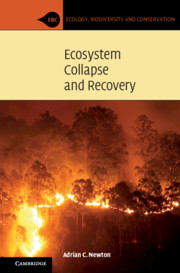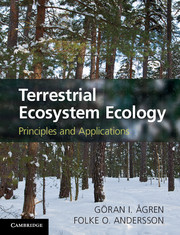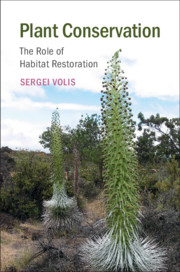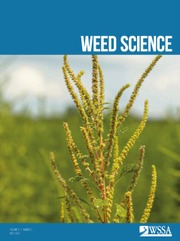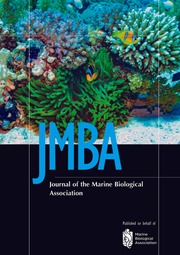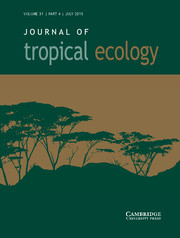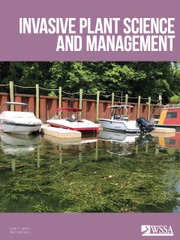Ecosystem Collapse and Recovery
£99.99
Part of Ecology, Biodiversity and Conservation
- Author: Adrian C. Newton, Bournemouth University
- Date Published: April 2021
- availability: In stock
- format: Hardback
- isbn: 9781108472739
£
99.99
Hardback
Other available formats:
Paperback, eBook
Looking for an inspection copy?
This title is not currently available on inspection
-
There is a growing concern that many important ecosystems, such as coral reefs and tropical rain forests, might be at risk of sudden collapse as a result of human disturbance. At the same time, efforts to support the recovery of degraded ecosystems are increasing, through approaches such as ecological restoration and rewilding. Given the dependence of human livelihoods on the multiple benefits provided by ecosystems, there is an urgent need to understand the situations under which ecosystem collapse can occur, and how ecosystem recovery can best be supported. To help develop this understanding, this volume provides the first scientific account of the ecological mechanisms associated with the collapse of ecosystems and their subsequent recovery. After providing an overview of relevant theory, the text evaluates these ideas in the light of available empirical evidence, by profiling case studies drawn from both contemporary and prehistoric ecosystems. Implications for conservation policy and practice are then examined.
Read more- Introduces an extensive ecological literature, integrating information from terrestrial, freshwater and marine ecosystems distributed throughout the world
- Provides an overview of relevant ecological theory using verbal descriptions and explanations throughout, including identification of a new set of fundamental propositions
- Enables relevance to conservation policy and practice using real-world case studies and examples
Reviews & endorsements
'… the book is written by integrating viewpoints from a variety of disciplines, among them that of theoretical ecology and of conservation biology ... What is particularly helpful in the structure of the book are the conclusions at the end of each chapter and a series of tables that aim to summarise and highlight ideas, conclusions and propositions … it references classical ecological work that is a springboard for the subject, … [and] provides some historical background on scientific debates… it also contains anecdotes of the author's personal experience and opinions (always well-balanced and undogmatic). … there are as many questions as answers provided in the book that would interest the general reader as well as the most experienced researcher in the field.' Vasilis Dakos, African Journal of Range & Forage Science
Customer reviews
Not yet reviewed
Be the first to review
Review was not posted due to profanity
×Product details
- Date Published: April 2021
- format: Hardback
- isbn: 9781108472739
- length: 350 pages
- dimensions: 234 x 156 x 29 mm
- weight: 0.89kg
- availability: In stock
Table of Contents
1. Introduction
2. Ecological Theory
3. Case Studies from Prehistory
4. Contemporary Case Studies
5. Synthesis
6. Conclusions.
Read the blog post by Adrian C. Newton
Sorry, this resource is locked
Please register or sign in to request access. If you are having problems accessing these resources please email [email protected]
Register Sign in» Proceed
You are now leaving the Cambridge University Press website. Your eBook purchase and download will be completed by our partner www.ebooks.com. Please see the permission section of the www.ebooks.com catalogue page for details of the print & copy limits on our eBooks.
Continue ×Are you sure you want to delete your account?
This cannot be undone.
Thank you for your feedback which will help us improve our service.
If you requested a response, we will make sure to get back to you shortly.
×
